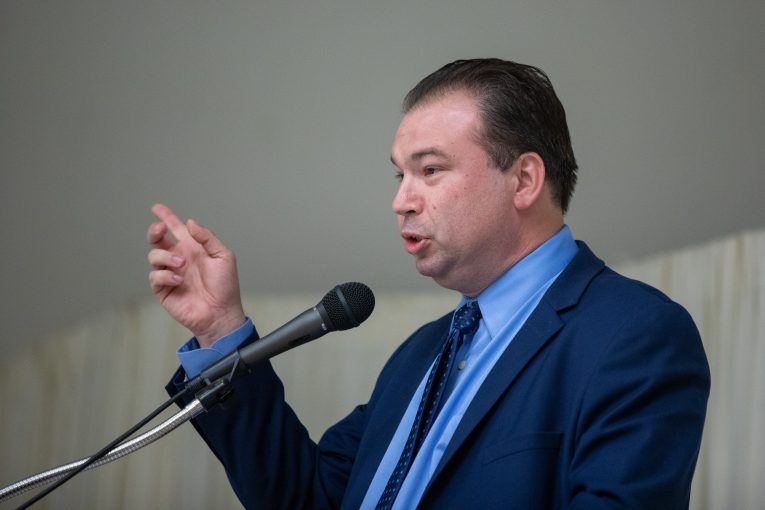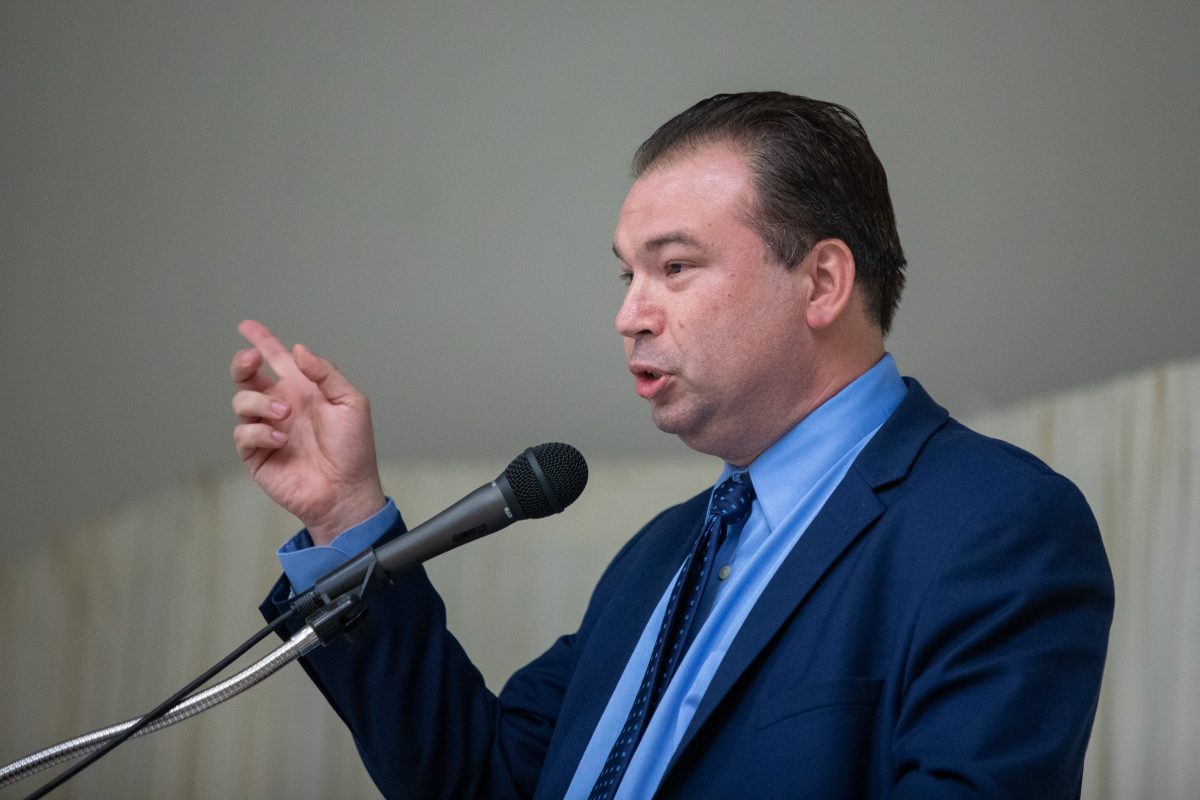

by Lauren Smith
On May 5 at 6pm the Vanguard News Group is hosting a panel to discuss decarceration and public safety. We will be joined by three panelists, Jeffrey Deskovic, Pamela Price, and Bianca Samuel.
Jeffrey Deskovic, criminal justice advocate, Advisory Board Member- California It Could Happen To You, Global Advisory Council- Restorative Justice International, exoneree, and founder of The Jeffrey Deskovic Foundation for Justice, emphasized the importance of discussing decarceration, stating, “Decarceration is a very important subject because somehow we look at incarceration as the answer to everything; often shockingly long sentences, particularly in Southern States.
“During my wrongful imprisonment, I met people incarcerated for non-violent offenses; people over-sentenced—some for drug offenses that had more time than those imprisoned for violent crimes; the elderly whose medical needs were beyond the prison capacity to address, some of whom had debilitating illnesses; and prisoners who clearly were not the same people they were 10, 15, 20, even 30 years ago when they committed crimes,” he continued.
Deskovic further stated, “Clearly they could be safely released, and yet they were often denied parole over and over again with no end in sight. Not only is that inconsistent with belief in rehabilitation and a second chance, but it was devastating to their families and friends, while as taxpayers we paid money to incarcerate unnecessarily rather than having somebody pay into the tax base.
“As a society, we are additionally deprived of the difference-making efforts many formerly incarcerated people contribute upon release when deserving prisoners are unnecessarily incarcerated.
“My presentation will therefore focus on parole reform as a means of attaining decarceration: fair and timely parole, which would prevent the parole board from denying parole based only on the crime—something that could never change—but instead 1 additional factor would have to be cited; and elder parole, which would allow anyone who is 55—the age that DOCS considers a prison elderly due to the toll prison takes on the body—and has served 15 years minimum, to be considered for parole.”
If you want to learn more about decarceration and public safety, don’t forget to purchase your tickets for the panel discussion on May 5 at 6pm. General Admission is $25, student admission is $15 and there are sponsorship levels starting at $100.

Two issues that don’t belong in the same sentence.
Part of the problem, as I see it, is the fungible definition of “decarceration” (which doesn’t appear on the VG spell-checker, ironically)…
The term seems to be in the eye of the beholder…
It could mean, 1) someone was exonerated; 2) pardoned; 3) served their term; 4) “skated”, etc., etc., etc.
By the same token,
has “issues”… if someone is ‘decarerated’ because it is shown they were factually innocent, is that a ‘public safety issue’? 2), 3), 4) [etc.] may, or may not be, belonging in the same sentence (pun unintended) as ‘public safety’.
Definition of decarceration: “ the practice or policy of reducing the number of people subject to imprisonment Decarceration is the effort to limit the number of people who are detained behind bars, either by limiting who is sent to prison in the first place or by creating avenues to release people already in custody”
The key question for this discussion is how do you reduce the number of people in prison while maintaining public safety.
That’s what one might call a self defeating phrase.
Only if you believe that the ONLY way to protect the public is to lock people in cages.
Letting people go free that should be locked up doesn’t maintain public safety.
Right. But your very statement tilts the scale: “who should be locked up…” The question that that statement skips is the important question – who needs to be locked up to maintain public safety. Are there other tools available other than a cage. Cages are a blunt instrument, they don’t do a good job of giving people the tools to move on with their lives and they are extraordinarily expensive and we also locked up way more than are actually a public safety threat.
I would reply but this is about the stage where my comments start getting deleted so why bother?
All your comments here are still up.
Aye, there’s the rub. What I tried to point out, however inelegantly…
David, please understand that there are many out there using the term to mean,
Many of them only add,
almost as an ‘after-thought’… trying to ‘sell’ their view that too many folk are incarcerated, particularly those ‘oppressed’ folk… they are oft focused on ‘decarceration’ in terms of POC, other status… make the %-ages work… little honest regard to “public safety”
I’ll assume you honestly see it as ‘balancing’ incarceration vis a vis public safety… I support that concept… but, “the devil is in the details”…
Bill – We framed this discussion to be specifically about decarceration while mataining public safety. In part precisely because of the reaction that people Ike Keith had to the theme.
There’s a lot of “people like Keith”, in regard to this issue. Or at least, share the same concerns – for good reason.
Tried to clarify before the shot clock shut down: For “evidence-based” reasons.